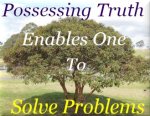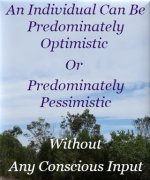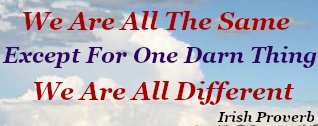Intellectual Property Rights
And Creative Freedom
Part 3 - Part 2
Essence Of Creative Freedom
The major point to bear in mind whilst studying intellectual property rights legislation is that it does not protect ideas. This point is possibly the least understood aspect of intellectual property law.

What copyright protects, is the effort an author has invested, in structuring an original endeavor around a given idea. It is to reproduce another individual's effort that one must seek permission for.
Similarly, patents protect the particular execution of an idea, not the idea itself.
In both these cases, original, unique, expression, or execution, of any idea can be considered limitless. This is the essence of Creative Freedom and is the mainstay of Human Progress
It is every smidgen as essential to protect Creative Freedom as much
as the products that a switched on Mind working within that Freedom
produces.
Many Reasons To Copy
Nevertheless, while the phenomenon of Creative Freedom is undoubtedly true, there are times when employing other's endeavors, is entirely befitting.
Perhaps a particular author writes in such a manner that articulates and conveys an idea so lucidly, that his or her effort deserves to be included in one's own presentation, verbatim et literatim. That is, unchanged.
Sometimes a patented mechanism just happens to be most suitable to effectively complete a machine. Even amongst originally conceived alternatives.
Or, to produce a desired Creation is simply beyond one's innate ability to do so.
For example, I wished to express a wonderful relationship visually, but (apart from technical drawing) cannot draw or paint to save myself.
This expression of friendship fills the bill perfectly. It is a gentle, yet poignant, reminder that we all need each other's skills and talents, which is why you will find other's efforts on this site.
The reasons to use others work is as endless, and personal, as creativity itself. By definition, when we share we benefit. New things are brought into being. One thing is for certain, doing the right thing by each other stimulates one's Mind to operate on higher planes of thought. Which is the place where we must be to do our own best work.
Doing the Right Thing means asking for - and where appropriate giving - permission.
Intellectual Property Rights And Permission
To legally reproduce another creator's intellectual property, permission must be sought and gained.
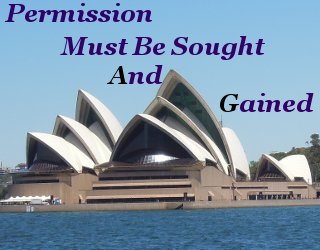
This can be a relatively simple transaction or a time wasting nightmare.
All depending on the age of the work and how many times entitlement may have changed hands, or even the practical problems involved in locating an author of a work.
Determination and the desire or need to use a work rules. A useful place to begin searching, of course, is the net.
Websites
Many copyright holders maintain websites relating to their wares, which is a good starting point to make contact. Writing letters to Publishers, and Author Associations, in your field of interest, is an alternative to track down rights holders.
Some websites clearly display an easy to follow system to obtain permission to use copyright material.
Others are not so generous, or approachable, as their less than friendly terms and conditions of use indicate in no uncertain language.
Copyright Clearance Centers
Copyright Licensing Agencies are a viable commercial alternative who provide fee based licenses to consumers and distribute payments to rights holders. Clearance is industry jargon for permission to copy.
Big Questions
The Important point here is the ease or difficulty with which one can obtain approval. How much effort and time must be spent to gain such approval.
How important is it to you to use a particular work?
Plagiarism And Permission
Plagiarism is an attempt to profit from the effort of a fellow author by passing it off as one's own work. Doing so is no different to any other form of theft.
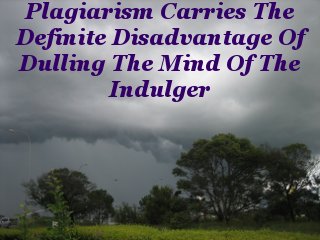
In addition to inflicting guilt for wrongdoing, plagiarism carries the definite disadvantage of dulling the mind of the indulger.
Better by far, for the psyche, to scrupulously observe this viewpoint and always aim to be original.
Doing the right thing delivers a handy boost to a healthy self esteem.
If reproducing another's endeavor is central to expressing one's own ideas, it is a simple moral decision to obtain permission from copyright and patent holders. Or offer appropriate attribution to the author who publishes under the auspices of Open Source.
The practical procedure of obtaining permission for other's intellectual property rights is aptly addressed by Open Source licenses. Seeking permission, from individual rights holders is still very much an area that requires said rights holders to demonstrate their attitude, and clearly indicate whether their work can be used by others, and if so, to what degree.
Saving all involved oodles of time that can better be spent on Creative Effort.
Intellectual Property Rights Rock!
Part 3 - Part 2
Next - Rights Infringement
